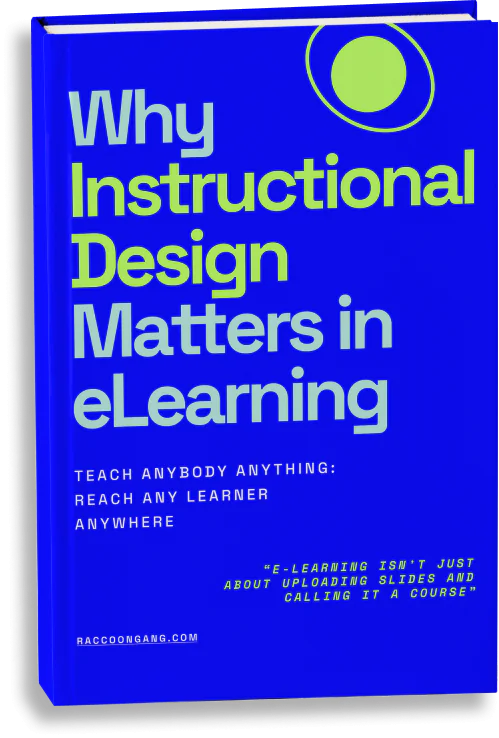The main difference between Moodle and Open edX® solutions is their fundamental approach to online learning platforms. While Moodle emphasizes flexibility and customization, the Open edX platform prioritizes scalability and advanced features. This blog post will delve deeper into these distinctions to help you choose the right platform for your e-learning needs.
Historical Context
Imagine online learning platforms as the automotive world: sleek, high-performance cars like Open edX LMS and reliable, family-friendly sports utility vehicles like Moodle LMS. Both have their place, but their origins tell a different story.
What is Open edX?
Open edX is an open-source LMS designed to create and deliver online courses. Developed by edX, a nonprofit organization founded by Harvard and MIT, Open edX provides a robust platform for educational institutions and organizations to host courses and engage learners worldwide. Its modular architecture and extensive customization options make it a popular choice for universities, corporations, and governments seeking a scalable and adaptable e-learning solution.
Picture a free, giant toolbox for building online courses. That’s Open edX! It helps schools, companies, and anyone create engaging learning experiences, from bite-sized lessons to full-blown degrees.
What is Moodle?
Moodle, short for Modular Object-Oriented Dynamic Learning Environment, is another open source LMS widely used in educational settings. Created by Martin Dougiamas in 2002, Moodle focuses on providing educators with a flexible platform for building online courses and collaborating with students. With its intuitive interface and extensive range of features, Moodle caters to a diverse array of learning needs, from K-12 education to corporate training programs.
Picture a free online classroom toolkit where teachers build fun and engaging courses, students learn together, and everyone connects easily. That’s Moodle! It’s perfect for creating lessons, quizzes, discussions, and more for schools, businesses, and even individuals.
Open edX vs. Moodle?
Ultimately, the best choice depends on your needs and technical skills. Let’s delve into the specifics to help you make an informed decision.
Target Audience
Understanding who thrives with the Open edX and Moodle helps you chart your course. Recognizing yourself in one of these target audience categories can simplify trying on the platform for size. Remember: This is just a snapshot, and individual needs can blend.
Open edX
- Universities and Institutions. Delivering MOOCs, professional development courses, and large-scale online programs.
- Corporations. Training employees globally, onboarding new hires, and upskilling workforces.
- Nonprofit Organizations. Building accessible educational resources for diverse communities worldwide.
Open edX platform excels when handling large learner numbers, offering advanced features, and promoting open access to education.
Moodle
- Individual Teachers. Creating engaging courses for virtual classrooms, blended learning initiatives, and personalized instruction.
- Small Businesses and Training Providers. Designing custom training programs, delivering certifications, and managing smaller cohorts.
- Schools and Colleges. Supporting traditional classroom learning, facilitating blended and flipped learning models, and promoting teacher autonomy.
Moodle shines with its user-friendly interface, flexibility for diverse learning styles, and strong community support for educators.
Core Features & Capabilities
Open edX LMS and Moodle are powerhouse learning platforms, but each shines in different areas. Both platforms offer core features like content management, user management, communication tools, and assessment.
Open edX
- MOOC powerhouse. Built for large-scale courses with thousands of learners, perfect for universities and enterprises seeking wider reach.
- Structured learning. Guides students through well-defined learning paths with video lectures, quizzes, and interactive learning exercises.
- Advanced assessment. Offers sophisticated grading options, including peer reviews and automated scoring for complex problems.
- Data-driven insights. Provides detailed analytics for tracking student progress and measuring learning effectiveness.
- Scalability. Handles massive learner numbers efficiently, ensuring smooth performance even for popular courses.
Moodle
- Flexible learning. Caters to various learning styles with diverse activities like forums, wikis, and collaborative projects.
- Teacher-centric. Empowers instructors with tools for creating personalized learning paths and adapting content to specific needs.
- Community spirit. Fosters interaction through forums, chat rooms, and social learning features.
- Plugin power. Extends functionalities with a vast library of plugins, catering to almost any imaginable learning need.
- Easy setup. User-friendly interface simplifies course creation and management, ideal for educators without coding experience.
Integration and Customization
Both Open edX and Moodle are popular learning management systems, but they differ in their approach to integration and customization.
Open edX
- Focuses on building custom integrations with external systems like payment gateways, analytics tools, and other LMS platforms. Requires more technical expertise compared to Moodle.
- Offers deeper customization options for the platform’s core functionalities and user interface. Requires programming knowledge and can be more real time-consuming.
Moodle
- Leverages plugins and themes to personalize the user experience and add features. Easier to customize without coding, but customization depth might be limited compared to Open edX.
- Provides a wider range of ready-made plugins for various functionalities, making integration more accessible for non-technical users. However, complex integrations require development.
Here’s a table summarizing the key differences:
| Feature | Open edX LMS | Moodle |
| Integration | Custom-built, requires technical expertise | Plugins, easier for non-technical users |
| Customization | Deep customization, requires programming | Themes & plugins, easier but less depth |
| Best for | Advanced users, complex needs | Beginners, easy-to-use integrations |
Scalability and Performance
When it comes to handling the heat of online learning, both Open edX and Moodle offer their brand of sizzle. Scalability isn’t just about numbers but also about the types of courses and expected usage patterns. Both platforms offer tools and guidance for optimizing performance, but expertise might be needed for complex setups.
Open edX platform
- Built for MOOCs. Designed to handle massive crowds like a seasoned stadium host, catering to millions of learners without breaking a sweat.
- Cloud-friendly. Leverages cloud infrastructure for on-demand scaling, seamlessly adjusting resources to accommodate surging student numbers.
- Performance optimization. Employs caching and other techniques to ensure smooth course delivery even during peak traffic.
- Trade-off. Complex architecture might require more technical expertise for setup and maintenance.
Moodle
- Horizontal scaling. Can be scaled horizontally by adding more servers, suitable for steady growth rather than sudden bursts.
- Community support. Large and active community provides resources and optimization tips for various server configurations.
- Trade-off. May experience performance limitations with huge user bases or demanding course content.
Pricing
Picking the perfect LMS isn’t just about features; it’s about finding one that fits your budget, too. Luckily, both Open edX and Moodle have free, open source versions. But wait, there’s more! Before you dive in, let’s untangle their pricing puzzles.
Open edX
Think “free to download, but bring your tech skills.” Hosting an Open edX instance can be like renting a fancy server mansion, so costs can add up. Fortunately, there are also managed solutions, starting around $5,000 per year for smaller teams. Think of it as having someone manage the mansion for you, but with a price tag.
Moodle
More like a cozy, customizable cottage. You can set it up for free, but be prepared to roll up your sleeves (or hire a techy friend). If you prefer a cloud-based option, MoodleCloud starts at $110 per year for 50 users. Think of it as a pre-built cottage in the cloud with limited customization options.
Here’s the key: While Moodle might seem cheaper at first, factor in things like upgrades, maintenance, and hiring a developer if you need fancy features. Both platforms offer free trials and demos, so take them for a spin before you commit. If you lean toward Moodle after this comparison, use our detailed Moodle pricing breakdown to estimate what hosting, support, and customization will really cost you.
Remember: The best price tag is the one that fits your wallet and your needs. Do you have a tech-savvy team and a big budget? Open edX might be your mansion. Prefer a simpler, DIY approach? Moodle could be your cozy cottage. Ultimately, the choice is yours, so pick the learning management system that lets you learn and grow without breaking the bank!
Community Support
A supportive community can be your compass when you journey into online learning platforms. Let’s explore Open edX vs. Moodle support.
Open edX platform
- Specialized expertise. Focused on higher education and enterprise use cases, attracting open edx developers and professionals with specific knowledge.
- Diverse platforms. Support forums exist for open source and cloud-based versions, catering to different needs.
- Active development. Regular updates and releases keep the community engaged and contribute to problem-solving.
- Potential drawback. Technical nature might intimidate beginners seeking basic troubleshooting help.
Moodle
- Global reach. Huge and diverse community encompassing educators, developers, and users from all walks of life.
- Multiple channels. Forums, chat rooms, and local user groups offer various avenues for seeking help and sharing knowledge.
- Friendly atmosphere. Known for its welcoming and supportive environment, especially for those new to online learning.
- Potential drawback. Sheer size of the community might make finding specific answers more challenging.
Think of it like this:
- Open edX LMS: Specialized team of experts ready to tackle complex technical issues.
- Moodle: Vibrant neighborhood where you can always find someone to lend a helping hand, even for basic questions.
| Moodle | Open edX LMS | |
| Support: |
|
|
| Supported Specifications: |
|
|
Remember:
- Both platforms offer official documentation, FAQs, and knowledge bases as primary resources.
- Utilizing the right forum or channel is key to finding relevant and timely support.
- Consider your comfort level with technical discussions and the specific nature of your questions when choosing a platform.









